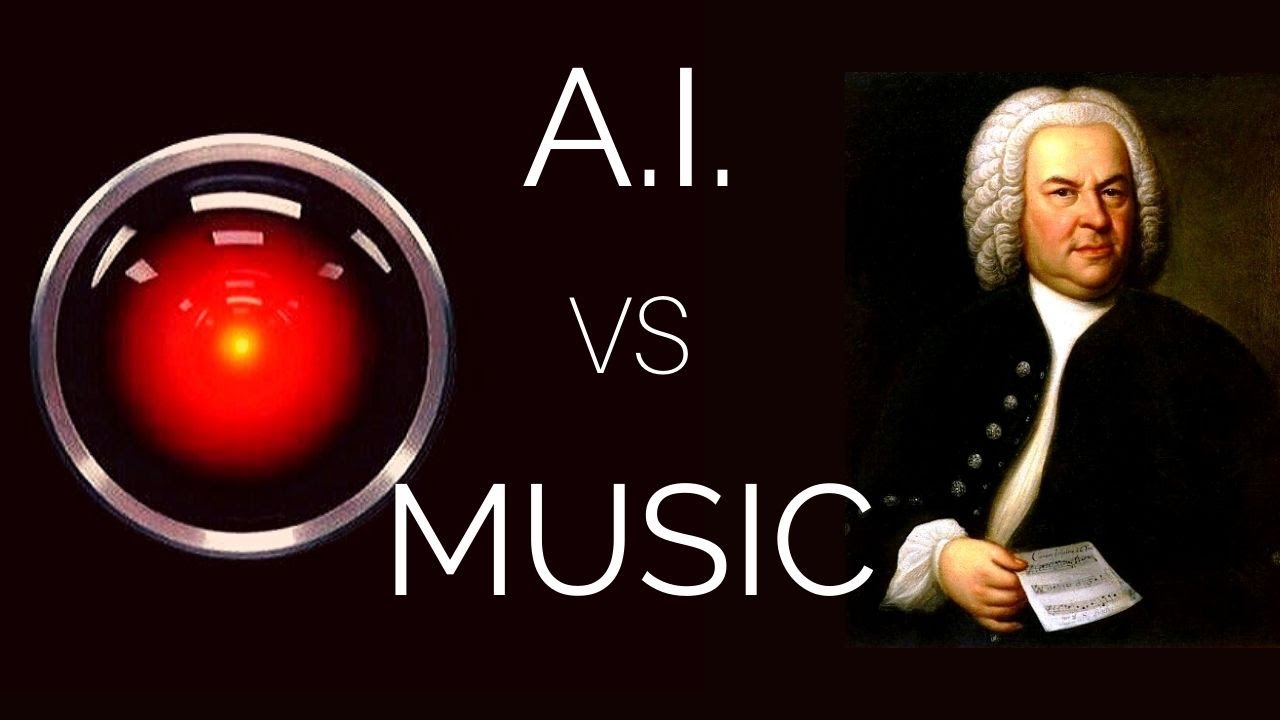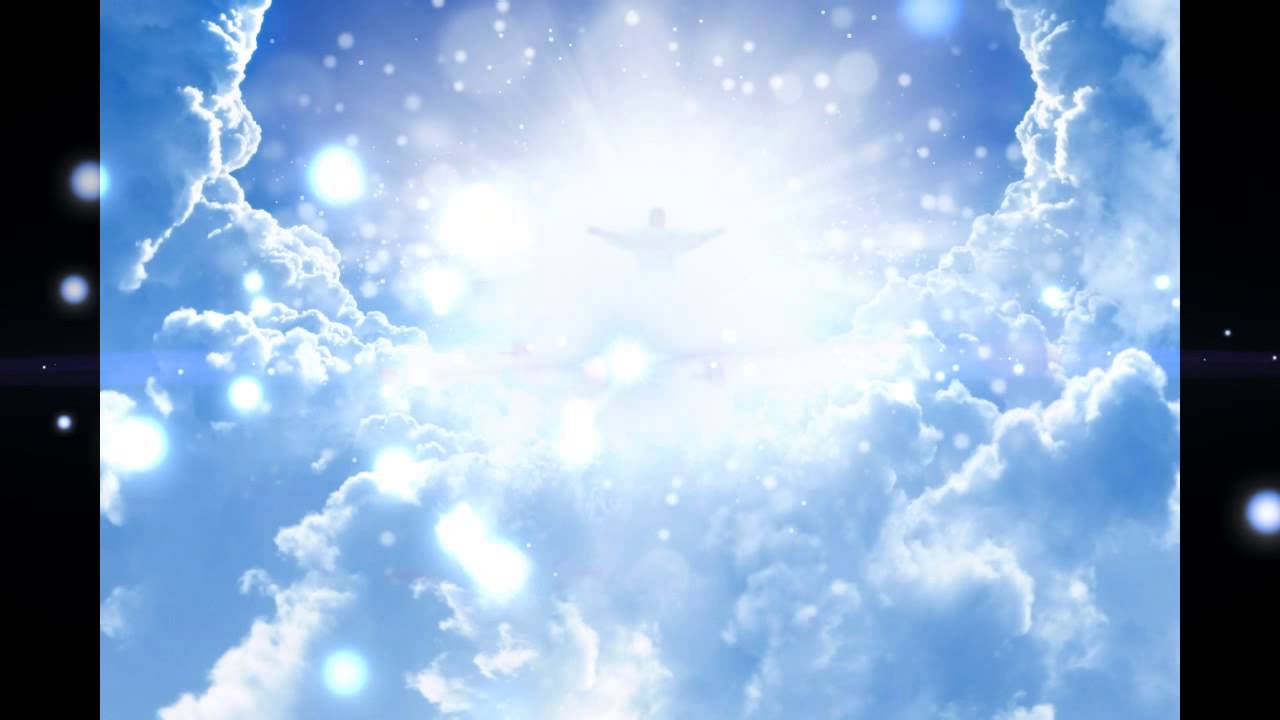Inside the Score
Visit https://www.nkoda.com/ for a HUGE library of sheet music, straight to your tablet, phone, or laptop!
Support this channel at: https://www.patreon.com/insidethescore
My Video on Expression and Emotion:
https://youtu.be/_ogVYKwgFJc
This video explores the extent to which A.I. is able to write its own quality music. It looks at A.I. recreations of Bach Chorales, Chopin Nocturnes, and newer developments such as AWS DeepComposer, and the A.I. Composer, AIVA. It also looks at moral and creative issues
Source




I played around with the Google doodle, and i got pretty consistently decent results when using a two chord structure, especially when it's a perfect cadence
Music is life, and love, a sense these machines cannot comprehend
THANK YOU!!!!!
Tell this to your AI overlord.
I’ve heard about this AI ‘uprising’ in music and literature and I thought that it was the end of my goals as I’m an uprising composer currently but I’m glad to see that hopefully it will be out of my lifetime where us composers are put out of a job. Thank you for the video.
I think AI will start writing music "with soul" as we do when a computer will decide to create a piece of music by itself without a human input or request.
every single human emotion and thought is a calculated mathematical operation, (although it is one we do not see), so i dont see why a computer couldn't get to the same level
By the way…. there was this historian that actually claimed the the music of Star Wars was in sense bad. That it was even racist. He kinda sad the evil atagonist got music that sounded in sense asian, or Indian and the good got the orchestra flair of western style.
The same Historian did also take up film composer like Ludwig Göransson, Hans Zimmer and saying they did the very same…
That would perhaps be a good angle for a video? 🙂 Is the music racist for Star Wars, and The Black Panther?
K522 is better than the AI music.
Unless some "AI" creates something to be enjoyed by another AI or even a human, with this intention then there is no point calling it music, or art at all.
I don't think that creating an autonomous AI to make music is particularly interesting. HOWEVER, it can be a great tool for some composers. You can generate sections in a score by inputting some material, an algorithm and a few parameters, and have that done more effectively and much faster than having to type everything out. Because, as it stands, software like Sibelius is not all that faster than composing by hand. But with some extensions it could easily become.
I hope not
Unless it really needs you teaching them good taste, so to speak.
what is the app called, the app there harmonize musi. like Bach.
The point you make about AI possibly not being able to create meaningful literature or music due to it’s lack of the human experience was somewhat mindblowing. I actually think it’s a necessity to understand human nature (yeah I know it’s a vague term) in order to handle the concept of meaning. Yet again, it would be imperfect or human, hence humans aren’t perfect.
Fantastic video. Please consider to do more on the relationship of music and meaning.
orwell predicted this in 1984
They already can and do… wake up and smell the coffee.
More data, more capacity. BUTMOREDATA
Surprisingly soon it will
I spot a ragebot!
Thumbnail ragebot: i—spot—you!!!
The essence of human creativity is recombination. Innovation comes through the combination of previously uncombined material.
AI can certainly write music as good as 99% of human beings. AI will never compete with Beethoven. If it even stumbles upon something reasonably good, it won't know how to develop or sustain it. It's better to learn the violin and play actual beethoven.
Thinking that AI will never be able to do something we can is just self-delusion.
The main problem is how to make the computer capable to distinguish between a good and a bad work of music. We are not only need to feed the AI a lot of great music, but also the generic and boring ones. Then we let the AI to analyze the top music chart or something, so it can evaluate what kind of music we liked and what makes those music different than the rest. It needs to recognize the pattern among the top hits music that the generic one doesn't have.
Most of those research and projects are simply not doing it correctly.
AI-generated music is inherently disadvantaged when being compared to human-written music. Chief among these disadvantages are the unwarranted inclusion of various outdated or poorly-constructed AI into the consideration of the quality of all AI outputs, cherry-picking of high-quality human-written music, and unequal limitations imposed on the human and AI composers.
13:26 Have you heard of GPT-2? The more impressive examples of its output include a coherent article written about unicorns (it has exactly one location where it demonstrates a lack of knowledge, which is when it calls the unicorns "four-horned").
That old Harry Potter AI example is an almost perfect example of how not to write AI. It has nowhere near a reasonable amount of training data, evidenced by the lack of structure. In fact, I would hesitate to even call it AI for one simple reason: given the amount of training data (a mere 7 books), it produced actually semi coherent results!
The positive AI examples are cherry-picked, which leads to most outputs being bad while some rare outputs are good. But I'll also point out that the positive human examples are also cherry-picked. In that timeline that you showed, we see less than fifty names out of the (probably) millions who ever hummed a new tune. And even of those greatest composers, do people know and love every single piece, or are only the best-known pieces judged, and the remainder fall to the wayside and are forgotten?
The AI may output good quality music only rarely. But after all music has gone through the fires of public opinion, only the best remain, regardless of who (or what) wrote it. Most people cannot write memorable music, so I think that AI actually has them beat there. (I know that the best AI written pieces I've heard here are more than I could hope to write). I would hazard to say that if the AI output were to be run through a quality-check algorithm (which might be a person, another AI, or both), the music that it might write may start to approach the quality of human professional music. Due to natural selection-like effects, the only human music that comes to mind tend to be the best pieces of music written by the best composers of their time. The AI-generated music that is being compared against those pieces obviously don't match up.
AI-generated music tends to be shown to the listener without a revision or verification step. This is in contrast to human composers, who may go through multiple drafts of the same piece of music and listen to it performed multiple times before it is released to the public. Thus, only sufficiently enjoyable music is released to the public by human composers, in contrast to the AI-generated music, which can lack such review steps. It may be possible to compare both of these outputs. But it may be more reasonable to compare the typical output of the AI to the typical output of a typical person. Or, one might compare the typical output of the AI against he typical output of today's best composers… but give them the same 30 seconds to write the music and no revision time.
There are multiple effects that seem to reduce your perception of AI generated music in comparison to human-composed music.
(Did I just write an essay on a YouTube comment? Oh well…)
"ron is going to be spiders" XDD
Lots of problems with this video:
1) You have referenced "soul" as an important object regarding art several times in this video. What is soul ? If your definition can be understood in terms of things whose behaviour can be predicted then AI can emulate it. If that isn't the case then soul can't influence anything in reality, let alone music or literature.
2) There may not be literary pieces written by AI that have artistic nuances but there are literary pieces written by AI that are coherent and indistinguishable from human written pieces. A little google search will show you that. Your example to show that AI can't write coherent literature therefore is very dishonest.
3) The examples of AI music which you showed as examples of crappy music seemed fine to me. May be that is because I am a layman when it comes to music while you are a lot more knowledgeble but here is the thing, whose decision really counts ? Yours, because you have practiced music much more than I have and hence more knowledgeble than I am ? If that were the case then only masters would decide what counted as good music and what didn't and if that happened the constant change in musical trend that you yourself have talked about would not be there. It seems as though the majority of listeners, the ones who have next to no musical training decide whats good and whats bad, the trend changes accordingly. In that case, if the mass find AI music to be good(such as I have) even when experts do not, can you really call it bad music ?
4) Human experience can be reduced to a set of neural signals. These signals can be understood in terms of the particular human brain and the resulting info can be decoded by a computer and fed into an AI, so if human experience is the limiting factor in AI music then there would be no problem in AI composing good music. I'm not saying that its already done, but its possible and could be done much sooner than you might think.
5) Similar arguments apply for emotions. These things aren't impossible to grasp for computers.
6) If artists don't make art for others but for their own joy then I don't see the problem if their "job" is taken over by AI. They can keep doing what they were doing just like before, after all they don't depend on their art to satisfy others and earn money that way now do they …?
In short, if it is an object that isn't literally anything possible an AI will definitely be able to do it, sooner than later.
But what if scientists live FOR the creation of AI?
The Harry Potter thing is like "When you put too many levels into grammar and forget to put anything into semantics."
Can an A.I. evaluate its own work and decide if the result is good enough? Can it decide if something has to be redone and would the new result better or just different? I think we all know the answer.
I disagree with that only musicians do their work for the work itself. I think for most professions this could be said. Maybe someone drives a cab, because he wants to drive a cab. A very selfish worldview from Yokky.
I'm not saying that AIVA is perfect but you can change tempo and key, please use the programs you talk about 🙂
Computer has no sense of what sounds 'good'. Also the quote containing green by Naom Chomsky, isn't likely referring to the colour green, but about being environmentally friendly, in that context it makes much more sense. Inaction on green issues. Sleeping furiously = dreamt up constantly, but just that, dreams; rather than reality, hence colourless – possibly a quote targeting world governments for failure to act on global warming issues.
Here's an interesting article from 23 years ago: https://www.nytimes.com/1997/11/11/science/undiscovered-bach-no-a-computer-wrote-it.html
0:50 What program or website is that?
„something more advanced than Bach“. You mean something impossible?
The problem is having an evaluation function which be executed rapidly and repeatedly. With chess you can have an AI pitted against other instances of itself, and there are clear definitions of success and failure. With AI music you could theoretically have humans listen to and evaluate the output, but you couldn't do that many thousands or millions of times unless you have a very high traffic website largely dedicated to that purpose. The best you can do otherwise is to have a second AI which attempts to evaluate the output of the first AI, either assigning it a quality score or attempting to distinguish between AI and human compositions. Since the second AI will necessarily have musical taste which is inferior to that of a human, the first AI will never get good enough to fool a human.
The more different kinds of music you feed to AI, the better chance it has of finding the common thread that runs through it all, i.e. the reason why humans have enjoyed those different kinds of music (even if not all by the same individual). Theoretically then it could come up with new music that passes as human-level.
If you feed an AI just one type of music, it won't be able to make original/novel music.
This all depends on the design of the AI and how many neurons it has available, and obviously there's no AI that has achieved that level of understanding yet. But please don't fool yourselves into believing there's something esoterically special about human-made music. This is the musical equivalent of the "God of the gaps" fallacy – it will quickly shrink away.
the best part of the video was easily the harry potter chapter
“No so handsome now” thought Harry as he dipped hermione in hot sauce. SCANDALOUS!
Guess why we don't remember the ones saying planes won't fly, heart transplants won't last, etc ? For the same reason we won't remember this video : science proved them wrong eventually
If a.i is programmed by humans, how is it the one composing and not the programmer of the a.i
No matter what , A.I. needs to be told what to do. Will not be original. That's what I, Robot is about… kinda.
ai will get there eventually, like it or not haha.
Because computers did not experience the pain a person would do during his long lived life
I think it's not impossible for AI to be as good composers as humans. I think if we see human minds, emotions, and creativity as a pure result of the very complex computer or algorithm that is the brain, we have no reason to doubt of this possibility, since AI are also very complex algorithms.
Also, thanks for this interesting video!
The fact that J, S. Bach has a "style" means that there must be a pattern. If you can say "That sounds like Bach." you have discerned the pattern, and so will an AI sooner or later.
It’s the absence of fantasy. Because even for us humans it’s not about doing or logical construct , we even hardly understand what causes it or triggers. Even if we notice the beginnings we can never predict the rest because every each time it combines with different set of images, emotions sounds and thoughts , it could be irrational, moody choice while we feel we keep it , similarly of stoping or moving time. I just said some crazy shit 😂 I guess this video was so inspirational. Lol . seriously , it was interesting.
There’s this Japanese thing where real humans record their voices, and an algorithm sorta puts together songs and stuff. The voices r given characters and personalities and there r a ton of characters, with background stories and different ages and everything. The concerts are all holograms of the characters (they look like anime characters) and there r loads of fans. There’s this famous song they have in Japanese, everyone knows it from tiktok. It’s called I’m sorry but idk what it means in Japanese and I searched up the meaning of the lyrics and now I’m forever scarred. Their music is definitely not my cup of tea but it’s interesting to learn about.